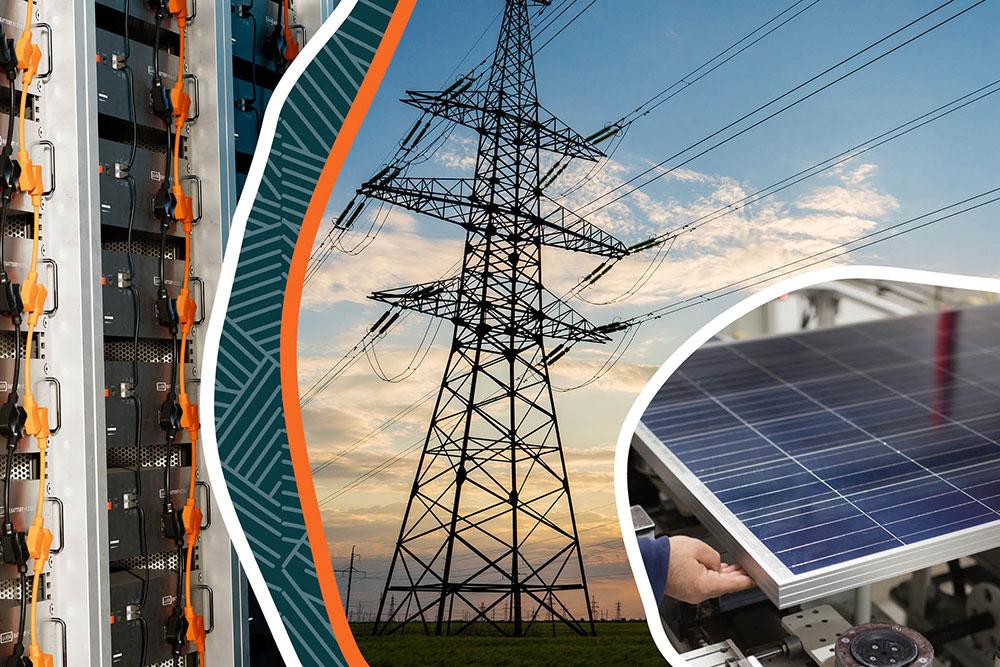Australia confirmed as international collaborator on US’ long-duration energy storage initiative
October 7, 2024

Indeed, the announcement that Australia will be an international collaborator for the US DOE’s Long Duration Storage Shot initiative will increase the two nations’ support for energy storage technologies.
The initiative aims to reduce the cost of grid-scale energy storage by 90% for systems that deliver over 10 hours of duration within the decade. These are often described as long-duration energy storage (LDES) technologies.
Long Duration Storage Shot will consider all types of technologies – whether electrochemical, mechanical, thermal, chemical carriers or any combination that has the potential to meet the necessary duration and cost targets for grid flexibility.
The announcement coincides with a recent report released by the Australian government’s Department of Industry, Science and Resources, which indicated that lithium-ion batteries are poised to “dominate” stationary storage for durations of under 4-hours. Still, alternative technologies could surpass them for LDES applications.
Specifically, the report outlined that although lithium-ion batteries are likely to dominate the energy storage industry, the technology has various flaws when scaling for longer durations.
The Department of Industry, Science and Resources indicates that sodium-ion and flow batteries could provide cost-effective and efficient LDES. Energy-Storage.news reported last week that the Queensland government had invested in Australia’s first ‘14-hour’ iron flow battery factory, being developed by Energy Storage Industries—Asia-Pacific using technology licensed from US-based IP holder ESS Inc.
By being named an international collaborator for the initiative, Australia and the US have agreed to meet annually and share best practices, strategies, and progress.
NREL and CSIRO deepen ties
Alongside this announcement, the two ministers also confirmed that the US National Renewable Energy Laboratory (NREL) and Australia’s Commonwealth Scientific and Industrial Research Organisation (CSIRO) will deepen their collaborative efforts to support the energy transition.
This deep collaboration comes in the form of an agreement to renew a memorandum of understanding (MoU) between the two companies, which looks to build a strong foundation to deepen technology R&D cooperation focussed on clean energy sectors.
The two organisations will also launch a report looking into grid integration of utility-scale battery energy storage systems (BESS), which will aid the Long Duration Storage Shot initiative. A timeframe on when this will be released has not been disclosed.
Alongside deeper collaboration with CSIRO, the ministers revealed that NREL and the Australian Renewable Energy Agency (ARENA) will sign a MoU later this year. The MoU encompasses technology cooperation and knowledge sharing, including renewable energy, energy storage, distributed energy resources, hydrogen, and First Nations Engagement.
Ministers emphasise support for clean solar PV supply chains
Alongside the announcements on energy storage and LDES specifically, the two ministers also emphasised their support for developing clean solar PV supply chains, which could leverage both countries’ investments and complementary resources from their respective solar industries.
As a first step in investigating the feasibility of an end-to-end solar supply chain, ministers noted their intent to conduct and report on techno-economic market studies on the solar industry, including polysilicon processing and trade. This work will leverage solar cooperation between ARENA and the US DOE alongside the Australia-US Clean Energy Industry Council.
This is the latest development between the two countries regarding creating clean solar supply chains. Indeed, our sister site PV Tech reported last month (23 September) that the Quadrilateral Security Dialogue, better known as the ‘Quad’, announced the launch of the first round of the Quad Clean Energy Supply Chains Diversification Program in Australia. The programme will open in November 2024 and focus on solar PV, battery energy storage, and electrolysers.
The AU$50 million (US$34 million) initiative will provide grants to fund research and development projects and feasibility studies to develop more diverse solar PV, hydrogen electrolyser, and battery supply chains.
Search
RECENT PRESS RELEASES
Related Post



